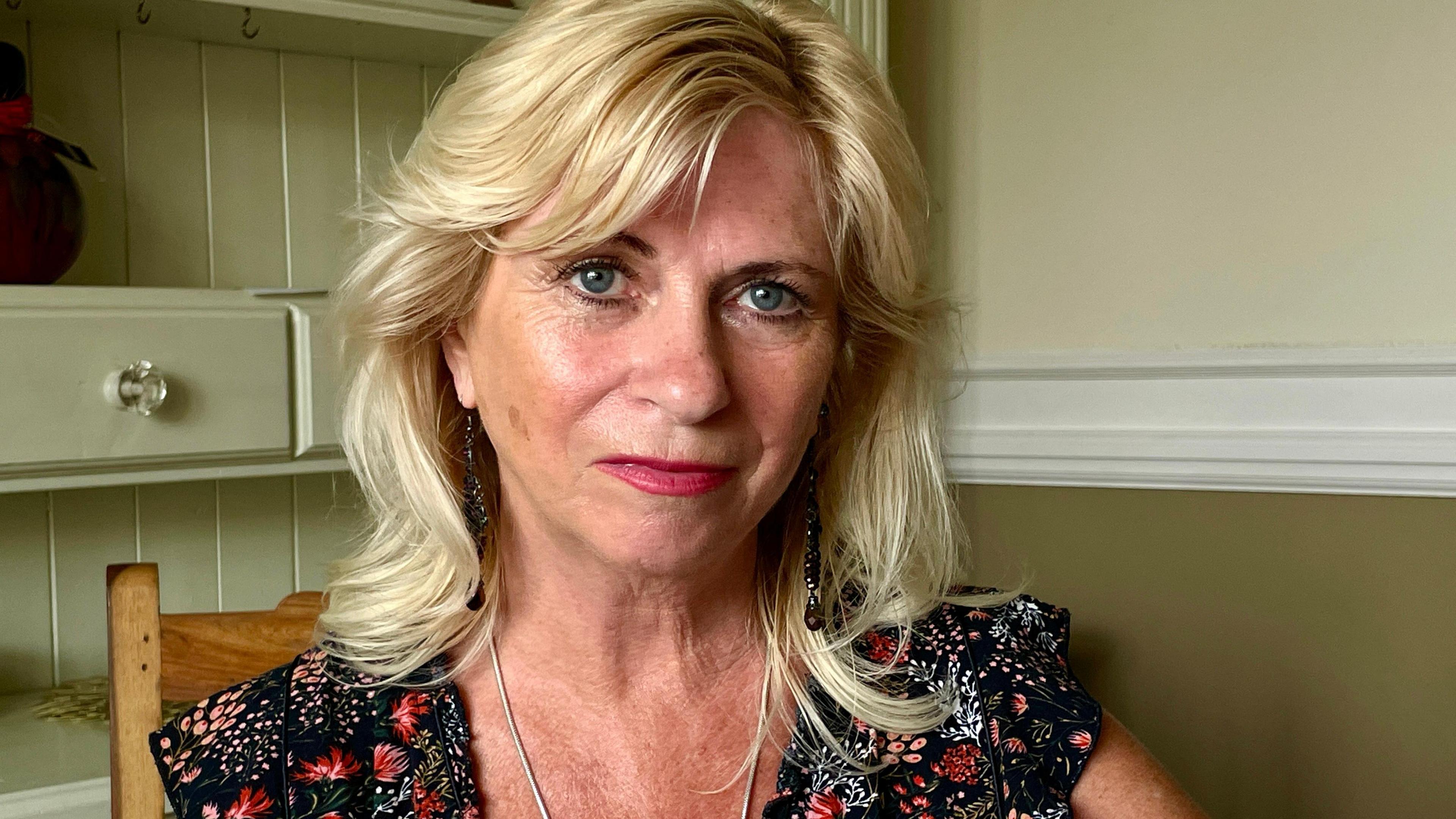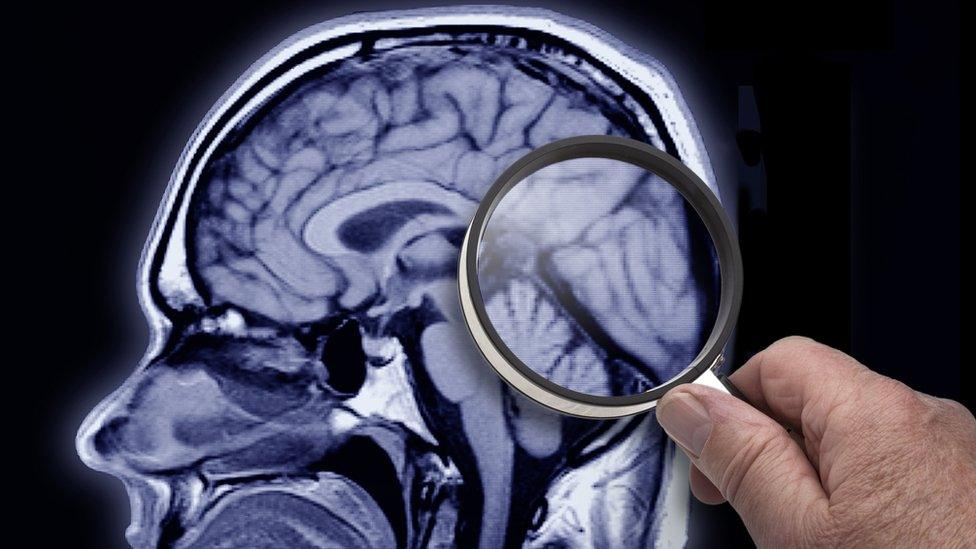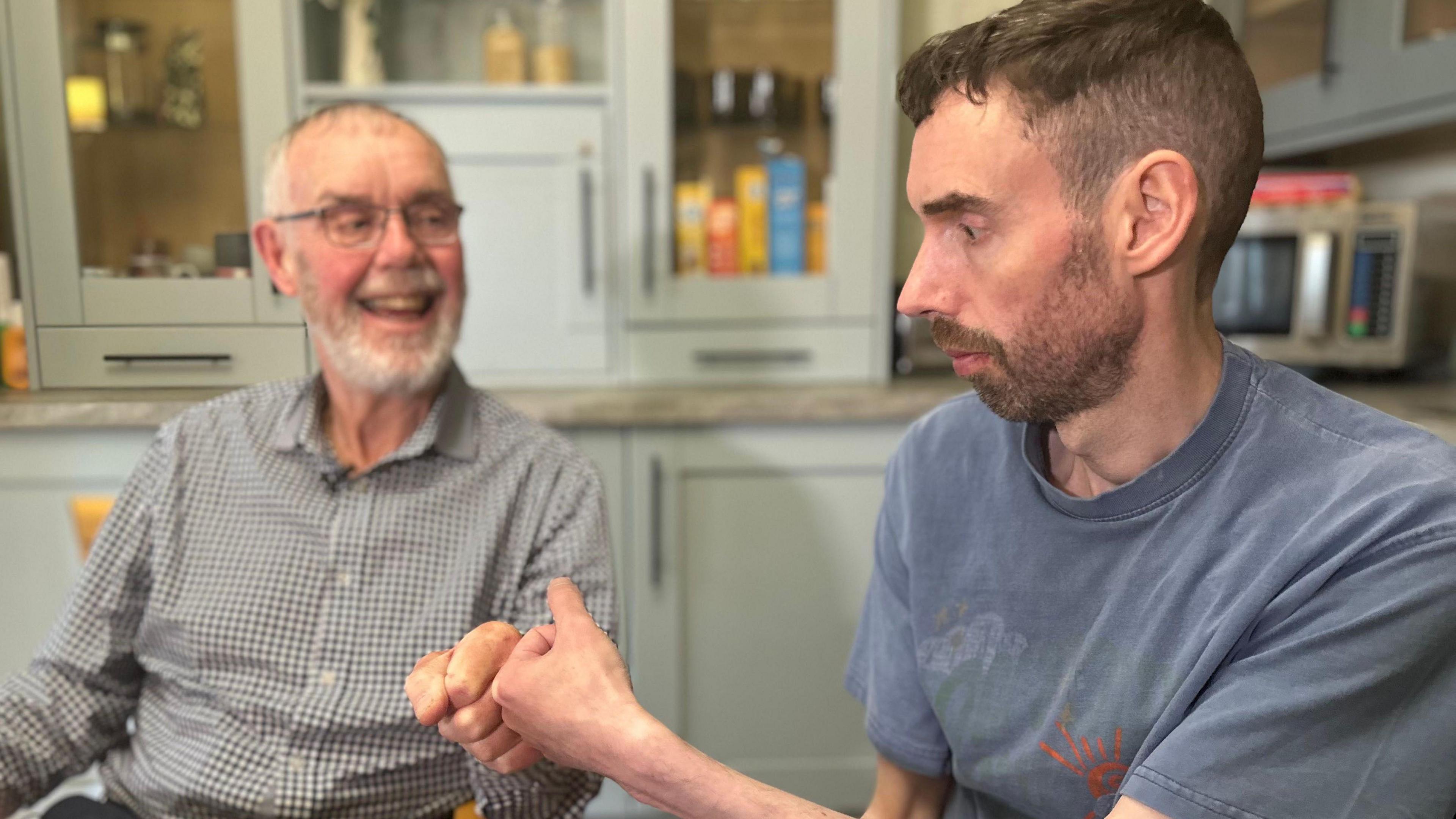'We need more support for early-onset Alzheimer's'

Nicola Wallis was diagnosed with early-onset Alzheimer's at the age of 61
- Published
A woman living with early-onset Alzheimer's disease says more needs to be done for people in her situation.
Nicola Wallis, 62, was diagnosed a year ago and said there was a lack of support and appropriate treatment for younger people receiving a diagnosis.
She said she had been to an Alzheimer's support group near her home in Sheerness, Kent, but was told it might not be suitable, as most people there were "in their eighties".
Ms Wallis, who received the diagnosis after being offered a dementia test by her GP, said: "You feel absolutely stupid, basically, and it's quite upsetting.
"You walk away and you think 'oh my goodness, what's going on now?' Because I didn't think about Alzheimer's at all."
It was recently announced that two breakthrough Alzheimer's drugs capable of slowing down the disease were too expensive to become available on the NHS.
Ms Wallis said the news annoyed her, adding, "I think that the government should start helping these people."
The NHS says Alzheimer's disease is most common in people over the age of 65.
The risk of the disease and other types of dementia increases with age, affecting an estimated one in 14 people over the age of 65 and one in every six people over the age of 80.
But around one in every 13 people with Alzheimer's disease are under the age of 65. This is called early-onset Alzheimer's disease.
If you are affected by any of the issues raised in this story, support and advice is available via BBC Action Line.
Dr Martyna Matuszyk, research communications officer at Alzheimer's Society, said: "It can be difficult for people to hear this diagnosis, early symptoms may not always be obvious."
But she said an early diagnosis was "really important to get all the support that a person might need".
Looking to the future Ms Wallis added: "I'm a little bit nervous, I must say I'm not frightened because there's no point in being frightened.
"You can only take one day as it comes. Tomorrow is another day."
Follow BBC Kent on Facebook, external, on X, external, and on Instagram, external. Send your story ideas to southeasttoday@bbc.co.uk, external or WhatsApp us on 08081 002250.
Related topics
Related stories
- Published4 April 2024

- Published6 June
